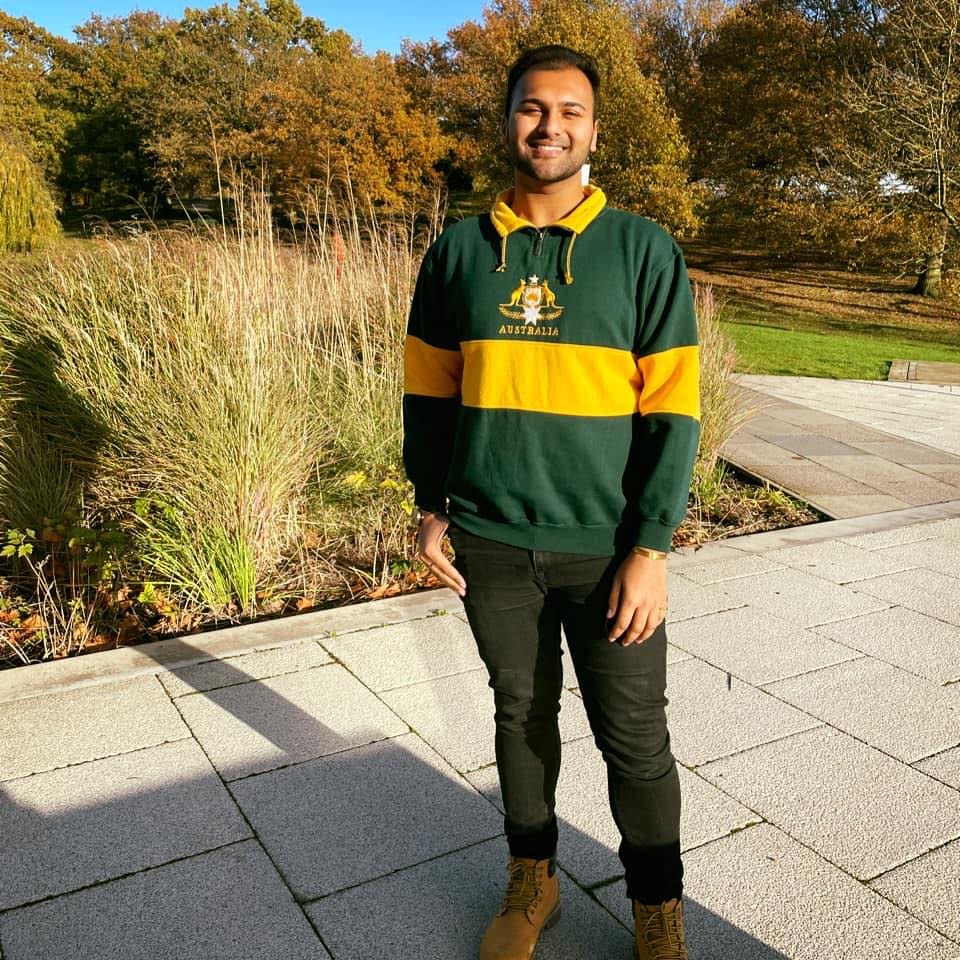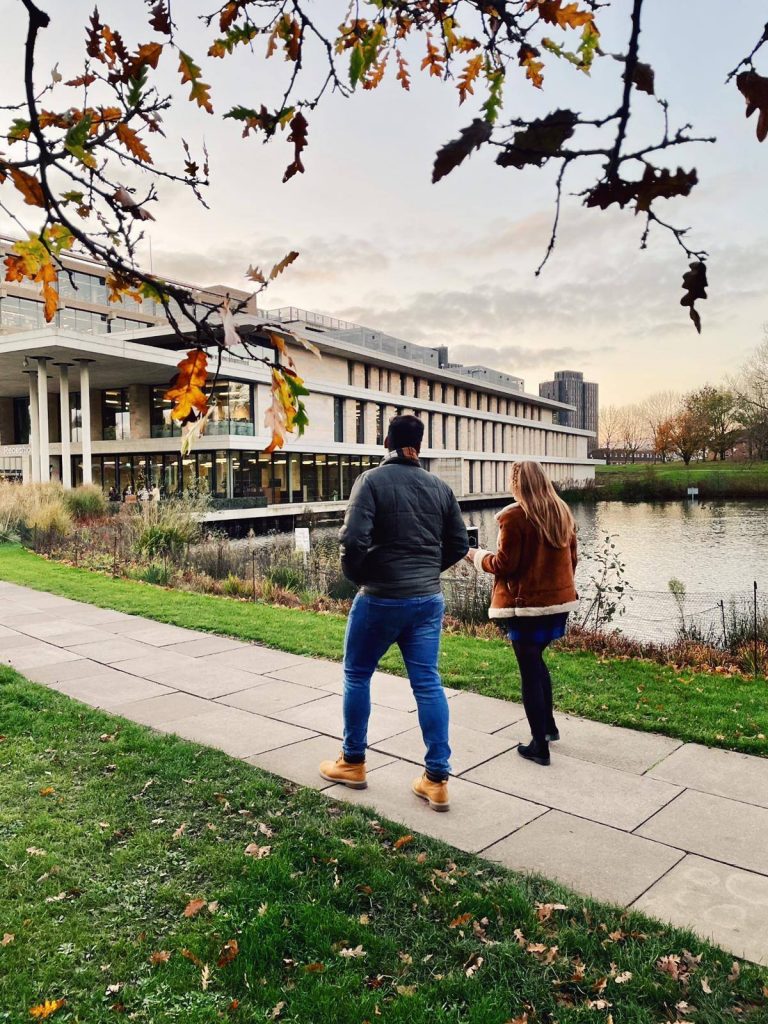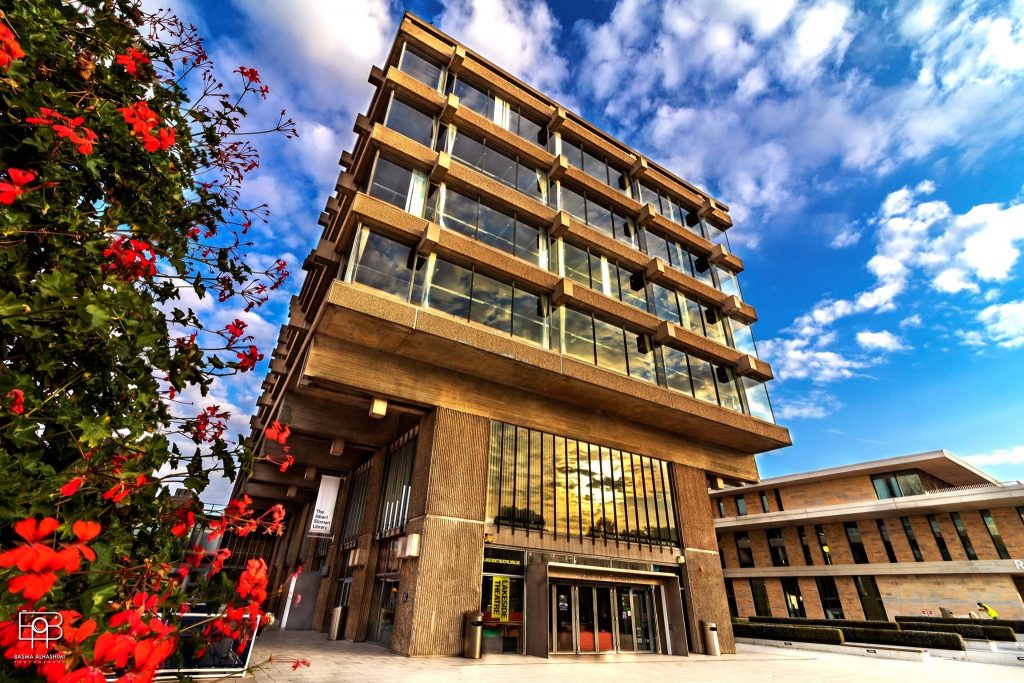This year, Rebel is focusing on breaking the glass window between students and the function of the Students’ Union (SU). Tom Abadie sat down with Vinnosh Kumar to discuss the second SU Parliament which was held in early December.
Now that the first SU Parliament update has been published and our video about SU Parliament’s function has helped you to understand a little more of what it does, we went on to interview Vinnosh Kumar, another Vice-President at the SU. As Vice-President of Welfare, his role is to oversee the wellbeing of students on and off-campus, be it mental or physical health as well as financial aid. He was the LGBTQ+ Officer in 2018-2019, which means that he has had prior experience within SU Parliament. He currently represents students at the highest level within university meetings in order to ensure they are getting access to services which will assist them through university life with a positive headspace. We discussed issues raised in SU Parliament that concern him as VP Welfare, such as the Hardship Fund, police presence on campus, the increase in staff at the wellbeing services and more.

During our initial topic of discussion, Vinnosh explained that “the Hardship Fund is there to help students who find themselves in situations where their financial provisions have been affected by unforeseen circumstances”. Most universities in the UK have a Hardship Fund; here at Essex, there are in fact two separate Hardship Funds; one run by the SU and one by the University itself, which is the one we discussed. The SU’s Hardship Fund aims to give smaller, short-term loans that would assist students for a couple of weeks. In comparison, the University’s Hardship Fund can help students financially over possibly a term or two. The fund has played a vital role in this year of pandemic as students find themselves financially challenged due to the effects of COVID-19. The University has already facilitated the application process to receive support from the Hardship Fund, although SU Parliament feels the threshold of an annual income of less than £35,000 a year may be unrealistic, especially for households with double income.
Hardship Fund managers have emphasised that more importance will be given to subjective elements when granting funds. Each applicant is in a different situation and their request should be analysed differently. Students may be separated from their families; there may have been a breakdown in the relationship with parents; care leavers and estranged students have been particularly affected by COVID-19 as there is often a greater dependence on part-time and full-time employment. Also, many students who were self-supporting through part-time work have lost their job due to the pandemic. All of these factors mean students are eligible to apply for the Hardship Fund and it is not therefore surprising that there has been a dramatic increase in Hardship Fund applications. In order to reaffirm their commitment to helping those students most in need, it is vital that the University shows as much understanding and transparency as possible.
Moving on, we discussed the police presence on campus as there has been increasing discussion amongst students regarding the enforcement of COVID-19 restrictions by the police. Alexandre Perin, one of the International Student Representatives, raised the incident with Vinnosh of a gathering in university accommodation. Hearing a commotion, police officers entered the said accommodation to find an illegal gathering and proceeded to issue fines to all of the students present. Students have started to feel that the police are breaching their right to privacy within student accommodation. In the past, students have learnt to live with security personnel, due to regular interaction when the night clubs or bars were operating or when they were performing rounds on the squares. The local police now have a visible presence on campus, due to their responsibilities under the Coronavirus Act 2020, which states that they have to control and protect individuals from mixing due to the pandemic. The aim of this legislation is to monitor community health and to ensure students and the local community around campus stay safe. Students are curious to know more about the police’s functions, outside issuing fines, and accountability when exercising their powers. It is important to understand that the University cannot directly question a police officer’s function or their jurisdiction as they are employed by Her Majesty’s Government, not the University. However, SU Advice is available to facilitate the dialogue between students and the police in terms of their practices.
Taking this issue further, international students, particularly those who need student visas to stay in the UK, are concerned that they will have a criminal record if issued with COVID-19 fines, a situation which could revoke their student visa. Moreover, they are concerned as to how this would affect a Disclosure and Barring Service (DBS) check when they wish to apply for employment in the future. Vinnosh had a meeting with Chris Oldham, Director of Estates and Campus Services, and Thomas Brown, Head of Security to discuss this. Although breaches in COVID-19 legislation constitute a criminal offence, the fine has more ambiguity. The government website states that “for some offences, there is a fixed penalty of £200, which will be reduced to £100 if paid within 14 days, or you could face a fine of up to £5,000 if you are taken to court.” The University has stated that the fines will not appear on criminal records if paid within 14 days, and will therefore not impact students with a Tier 4 visa or show up on a DBS check. The payment of the fine as soon as possible can only have a positive impact on students who have indeed breached government guidelines, regulations and restrictions.

We then moved on to discuss something more related to his role, that of student wellbeing. It is important to note that SU Advice and the Student Wellbeing and Inclusivity Service (SWIS) are two separate departments; SU Advice is operated by the Students’ Union and SWIS is operated by the University. In particular, we spoke about the increase in wellbeing staff within SWIS. Vinnosh, as VP of Welfare, works together with SWIS to ensure that the service is operating according to protocol and is continuing its commitment to bring the best and most suitable services to our students. Pre-pandemic, students were able to physically attend Drop-In Sessions with SWIS on the first floor of the Silberrad, just past the Student Hub. Currently, SWIS is operating an online Drop-In which you can access through the University website via Live Chat. Drop-In Sessions allow SWIS staff to signpost the student to get access to the help they need. They cover all ranges of student wellbeing issues including mental health, physical health, financial issues, grievances, long-term support and so much more. “There has been a massive increase in demand as you start thinking about the emotional detriment, the fear and the emotions that come with the pandemic,” says Vinnosh. There has been greater pressure on SWIS to meet the sudden influx of demand on services. Mental health has always been an issue before the pandemic within higher education and the pandemic has only highlighted the greater need for funding within this department. Having recognised this, the University has allocated more funding for SWIS, which has enabled the recruitment of two new wellbeing assessors for the SWIS department. Vinnosh sat on the recruitment panel and hopes that these additional members of staff will significantly improve waiting times for students to gain access to SWIS drop-in sessions.
Regarding SU Advice, Vinnosh says “We are not therapists, counsellors or psychiatrists. Our responsibility is to assist, help and represent students when the need arises and to signpost students to the appropriate services if we are unable to help.” SU Advice provides a buffer between students and SWIS; emotional support is initially provided due to the nature of their roles within wellbeing services. It is important that students understand and manage their expectations when they use SU Advice services. Vinnosh also talked about the advantages of the drop-in sessions being online (more practical, more private, …), which has led to an increase in the number of students attending their appointments. Downsides, however, are that it is more difficult to comfort students who may be experiencing an emotional breakdown and not all students have access to a personal computer. It is reassuring to know that the University and the Students’ Union are working hand in hand to improve the wellbeing services.
Our next topic of discussion touched on the policy of love and support for students with disabilities and mental illness as it was due to expire and was voted to be extended for another year by SU Parliament. Before voting, Mark, the Vice President of Education stated that the policy was not necessary as he felt that the moral and ethical values of the SU align with the policy and are ingrained within the organisation and its members. Vinnosh agreed with this. The SU believes that taking into account each and everyone’s challenges when it comes to education and life at university is part of the pledge the SU makes to students when they join the University of Essex. The policy will make it easier for students to scrutinise and question the actions of the SU.

Finally, we spoke about Vinnosh’s experience during Parliament in the Loughton Breakout Room. He feels it was a productive discussion regarding access to mental health services on campus, and it was crucial that Loughton raises these issues with their Sabbatical Officers. The aim of this session was to address how the services can be improved by increasing the presence of SU Advice and SWIS on their campus. They also discussed how to fit operating times for these departments around student timetables in Loughton, which is home to the East 15 Acting School. Primarily composed of drama undergraduates, students are usually in classes from 9 am to 9 pm with an hour of lunch break making it rather difficult for them to access wellbeing services on a conventional day. The conversation will be ongoing for the rest of the academic year. Student representatives are hopeful that a solution can be found for Loughton so that students have the same access to services that the Colchester and Southend campuses do regarding wellbeing services.
Vinnosh wanted to end this interview by stressing the importance of contacting him (vpwelfare@essex.ac.uk) or SU Advice (suadvice@essex.ac.uk) whenever you need help, in whatever form. The services provided by the SU are part of your SU membership and all University of Essex students are members of the SU. They are there to help students, in whichever way they can and it is vital that you reach out if you are struggling during this difficult time. It is really important for students to let their Sabbatical Officers know what issues they are facing in order for change to happen.